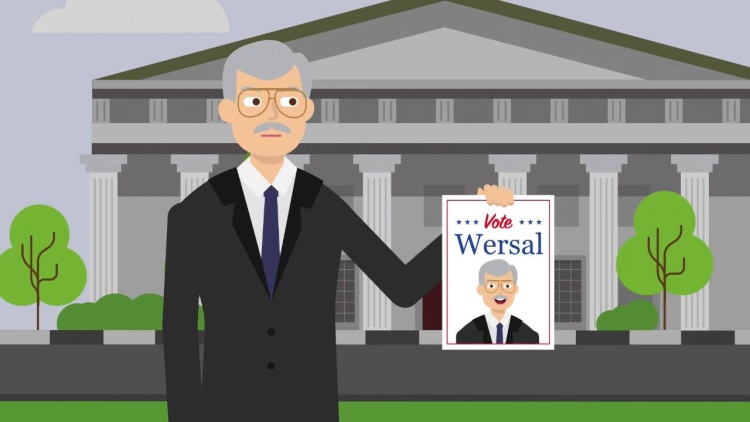Republican Party of Minnesota v. White
United States Supreme Court
536 U.S. 765 (2002)
- Written by Megan Petersen, JD
Facts
The Minnesota State Constitution provides for the selection of all state judges by popular election. Since 1974, these elections have been subject to a legal restriction which states that a “candidate for a judicial office, including an incumbent judge,” shall not “announce his or her views on disputed legal or political issues.” This law was known as the “announce clause” in the Constitution and judicial candidates were subject to severe penalties for violating the clause. In 1996, Gregory Wersel, a lawyer member of the Republican Party of Minnesota (plaintiff), ran for associate justice of the Minnesota Supreme Court. His campaign distributed literature criticizing several Minnesota Supreme Court decisions on issues such as crime, welfare, and abortion. A complaint was filed against him with the Minnesota Lawyers Professional Responsibility Board, which dismissed the complaint. Wersel nevertheless withdrew from the race, but ran again for the same office in 1998. He sought an advisory opinion from the Lawyers Board as to whether it would enforce the announce clause. The Board doubted that the clause was constitutional, but said it could not answer this question because it did not know the list of announcements Wersel wished to make. Wersel then filed suit in district court against White (defendant), a Minnesota official, seeking a declaration that the announce clause violated the First Amendment to the United States Constitution and an injunction against its enforcement. The district court granted White’s motion for summary judgment, and the court of appeals affirmed.
Rule of Law
Issue
Holding and Reasoning (Scalia, J.)
Concurrence (O’Connor, J.)
Concurrence (Kennedy, J.)
Dissent (Stevens, J.)
Dissent (Ginsburg, J.)
What to do next…
Here's why 904,000 law students have relied on our case briefs:
- Written by law professors and practitioners, not other law students. 47,100 briefs, keyed to 995 casebooks. Top-notch customer support.
- The right amount of information, includes the facts, issues, rule of law, holding and reasoning, and any concurrences and dissents.
- Access in your classes, works on your mobile and tablet. Massive library of related video lessons and high quality multiple-choice questions.
- Easy to use, uniform format for every case brief. Written in plain English, not in legalese. Our briefs summarize and simplify; they don’t just repeat the court’s language.





